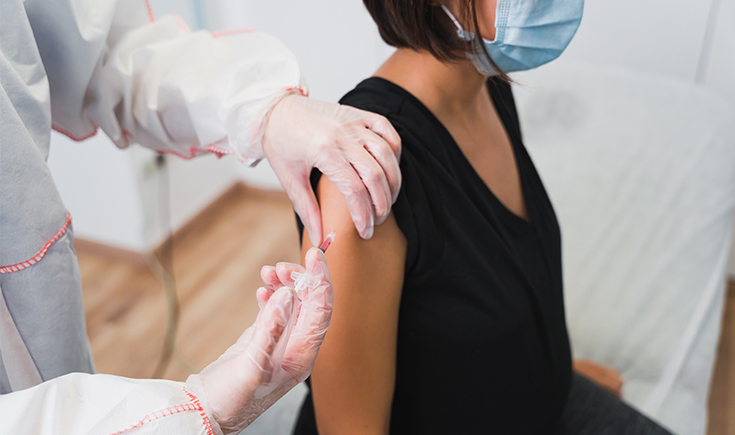

Australia’s coronavirus vaccinations program is set to kick off next month. Here we provide a quick guide to what everyone can expect.
When will the vaccine be administered?
The vaccine rollout will be broken down into five different groups, or ‘phases’, based in order of priority:
- Phase 1a: Made up of 678,000 people and includes quarantine and border workers, frontline health workers, and aged care and disability workers and residents. People in this group will receive the Pfizer-BioNTech vaccine (which is still yet to be approved by the prime minister).
- Phase 1b: Expected to cover 6.1 million people, and includes anyone over 70 years old, other healthcare workers, younger adults with underlying health conditions, high risk workers, and also Aboriginal and Torres Strait Islander people over 55 years.
- Phase 2a: This phase covers 6.5 million people including Aboriginal and Torres Strait Islander people who are between 18-54, along with Australians over 50 and other critical high-risk workers.
- Phase 2b: This is the rest of the adult population covering 6.6 million people, plus anyone from the previous phases that have missed out.
- Phase 3: The final phase will be for children, but only if recommended for an estimated 5.6 million.
What are the different vaccines?
Most Australians are due to receive the Oxford-AstraZeneca vaccine. There are currently no vaccines that can guarantee herd immunity. Those currently approved by regulators have only been found to reduce the severity of COVID-19.
It’s still unknown as to whether those who will be vaccinated won’t be prevented from getting infected, if they can still spread coronavirus to others, or how long the protection might last.
Where will the vaccine be administered?
The first round of the vaccine will be at 30-50 hospital sites around the country, but the government is planning to expand to more than 1000 locations. Exactly where they’ll be is still being decided within the states and territories. Doses will be administered in residential and aged care facilities.
How often is it necessary to be vaccinated?
For the vaccine to be effective, people will need to receive two doses about a month apart.
Is the vaccine mandatory?
The COVID-19 vaccines will be voluntary, but the Prime Minister is urging for as many Australians as possible to have the jab. Some airlines claim that they will demand passengers prove they’ve had the vaccine prior to boarding international flights, and it could be a condition of re-entry.
Who can’t be vaccinated?
In general, vaccines are safe for most people, except for people who are severely allergic (anaphylactic) to vaccine ingredients. In the UK, health authorities have advised such people not to get the Pfizer-BioNTech vaccine, after two people had a serious reaction to the jab.
The other group of individuals sometimes advised against immunisation are those who are significantly immunocompromised. This includes people going through chemotherapy, and those who have recently undergone an organ or bone marrow transplant.
However, none of the vaccines used in Australia are live, so theoretically they could be used in immunocompromised people. Health authorities and regulators will wait for further safety data from clinical trials before the recommended immunisation to these groups.
What about pregnant women and children?
Vaccine trials are usually conducted in healthy adults first, and pregnant women have been largely excluded from COVID-19 vaccine studies. UK health authorities have said there is insufficient evidence to recommend the Pfizer jab during pregnancy.
The same goes for children. Given the low risk of severe illness for children and young people, they won’t be a prioritised group.
For more information about Australia’s COVID-19 vaccines, head to this page on the government’s website.























